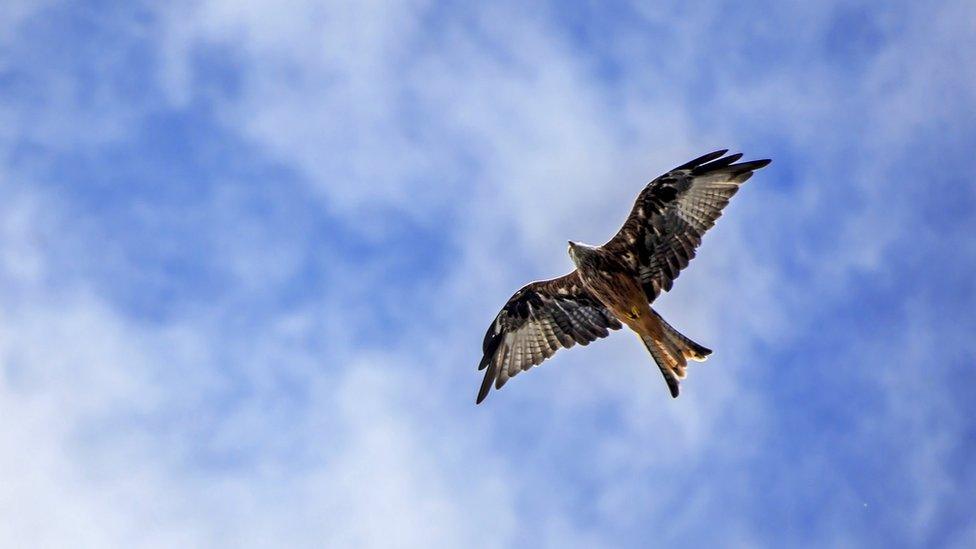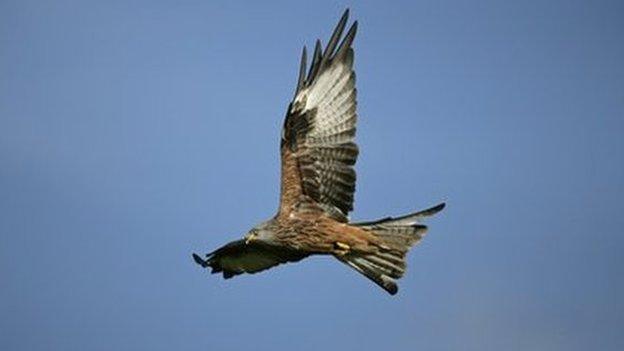Red kite numbers rising in Scotland, but more slowly in the north
- Published

Illegal killing has been blamed for limiting growth of red kite numbers in the north of Scotland
Numbers of red kites have risen throughout much of Scotland, but more slowly in the Highlands, according to a new Scottish Natural Heritage report.
SNH said survey work recorded at least 283 pairs of the birds of prey last year.
The new report , externalupdates earlier studies and suggests illegal killing of kites is still the main reason for limiting population growth in the north.
There are about 70 breeding pairs in the north of Scotland.
The report suggests that, had there been no illegal killings of the raptors, there could have been as many as 1,500 pairs in Scotland.
'Tough penalties'
Environment Secretary Roseanna Cunningham said: "It is of course, good news that red kite numbers are increasing in Scotland.
"But it must be said that it is extremely disappointing that this success is being lessened by illegal persecution of these magnificent birds.
"I want to be clear that wildlife crime is not acceptable in a modern Scotland and this is why we are doing all we can to end the illegal killing of birds of prey and working in partnership with stakeholders to achieve that.
"Scotland already has the strongest wildlife legislation in the UK and earlier this year we accepted proposals to introduce tough new maximum penalties for those who commit crimes against wildlife."
She added: "The Scottish government has ordered a review of satellite tracking data - we want to make sure we are getting the most information we can on when and how birds are disappearing."
A spokesman for the Scottish Gamekeepers Association (SGA) said: "Red kite conservation is a huge success story in Scotland and many SGA members are playing an active part in this which we, as an organisation, welcome and encourage.
"Before and after the period this report covers, we have had members taking part in regular ringing activity of red kites with local raptor groups and we are pleased to see this work continuing."
- Published28 August 2015
